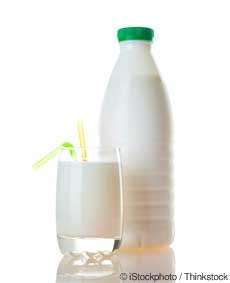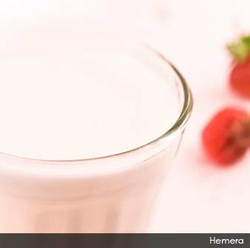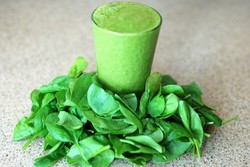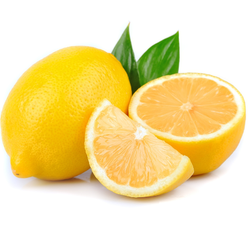 Cultured or fermented foods should be a regular part of your diet. If you eat optimal amounts of these healthful foods, you can keep your digestive tract well-supplied with good bacteria.
Cultured or fermented foods should be a regular part of your diet. If you eat optimal amounts of these healthful foods, you can keep your digestive tract well-supplied with good bacteria.
One of the best and least expensive ways to get healthy bacteria through your diet is to obtain raw milk and convert it to kefir, which is really easy to make at home.
To make your own homemade kefir, follow these steps:
- Add kefir granules in a clean glass jar.
- Pour in raw unpasteurized milk, preferably from a grass-fed and organic source.
- Leave it on your countertop overnight or for 12 to 24 hours. Make sure you keep it at room temperature and out of direct sunlight.
- By the time you wake up in the morning, your kefir should be ready. If it hasn’t obtained the consistency of yogurt, you might want to leave it out a bit longer. When it has reached the ideal consistency, keep it in the refrigerator to stop the fermentation process.
A quart of kefir has far more active bacteria than you can possibly purchase in any probiotic supplement. It is also very economical, as you can reuse the kefir from the original quart of milk about 10 times before you need to start a new culture pack. Just one starter package of kefir granules can convert about 50 gallons of milk to kefir.
This is a far healthier and far more economical way to nourish your body with probiotics than buying any of the commercial probiotic beverages on the market. Apart from issues in their probiotic content, most contain added sugars and undergo pasteurization, which depletes the nutrients present in the milk.


 After doing a series of interviews with Dr. Natasha Campbell- McBride, a Russian-trained neurologist with a full-time medical practice in the U.K., I became fully convinced that the introduction of fermented foods, along with the "heal and seal" process for the gut that she has developed, can help take your health to the next level.
After doing a series of interviews with Dr. Natasha Campbell- McBride, a Russian-trained neurologist with a full-time medical practice in the U.K., I became fully convinced that the introduction of fermented foods, along with the "heal and seal" process for the gut that she has developed, can help take your health to the next level.  Cultured or fermented foods should be a regular part of your diet. If you eat optimal amounts of these healthful foods, you can keep your digestive tract well-supplied with good bacteria.
Cultured or fermented foods should be a regular part of your diet. If you eat optimal amounts of these healthful foods, you can keep your digestive tract well-supplied with good bacteria.

 Protect Yourself Against the MRSA Super Bugon 03/16/2014
Protect Yourself Against the MRSA Super Bugon 03/16/2014
 Coconut Oil and Beyond: Get the Most Out of Coconutson 07/29/2013
Coconut Oil and Beyond: Get the Most Out of Coconutson 07/29/2013



Comments
I see Kefir at my local store but had no idea what it was. When you say "ideal consistency" what does that mean? Should it be like yogurt? I also don't understand this statement: "you can reuse the kefir from the original quart of milk about 10 times." I've never seen the starter packages, so I'll keep an eye out. I agree that probiotics are important.